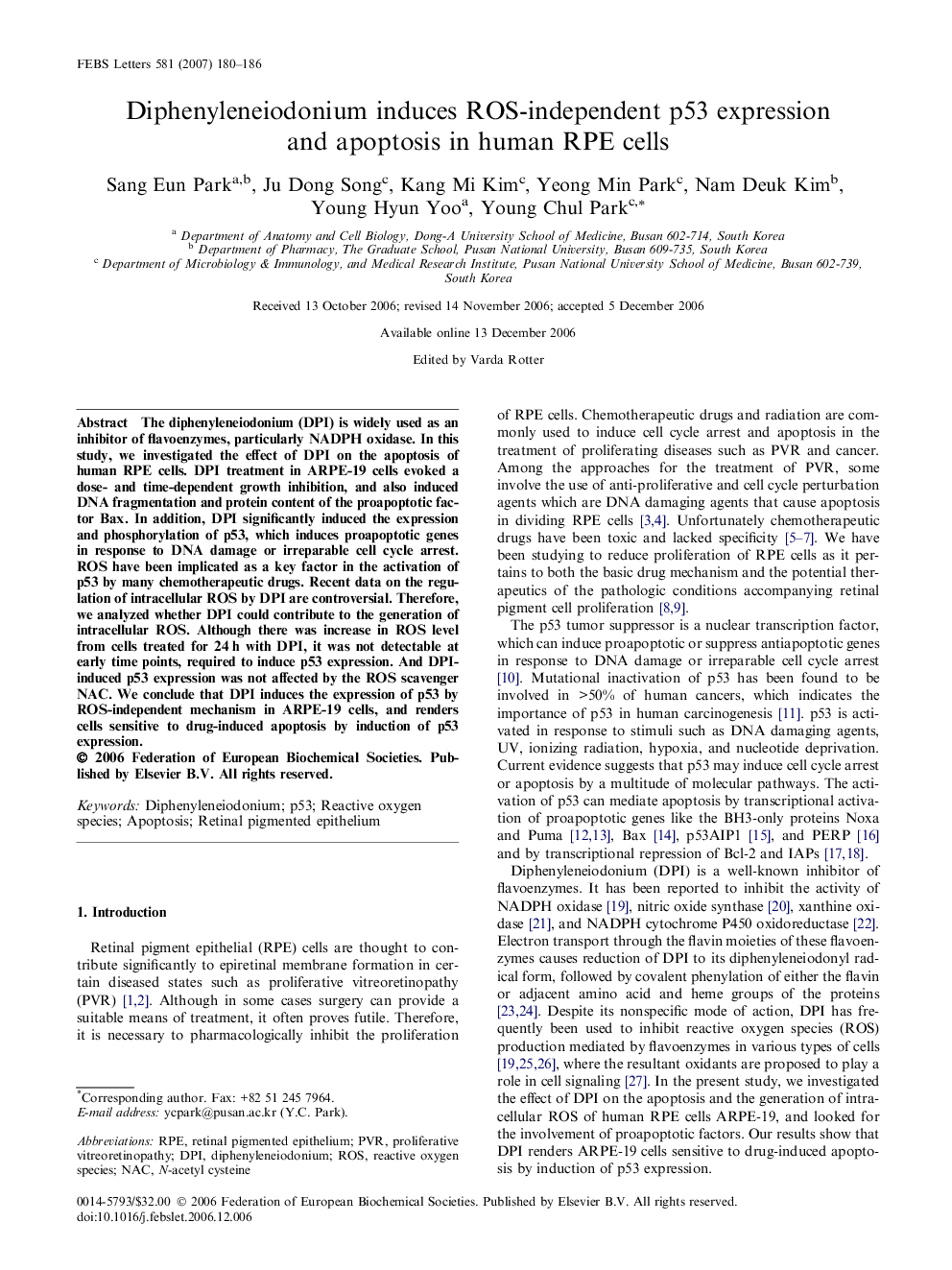| Article ID | Journal | Published Year | Pages | File Type |
|---|---|---|---|---|
| 2051749 | FEBS Letters | 2007 | 7 Pages |
The diphenyleneiodonium (DPI) is widely used as an inhibitor of flavoenzymes, particularly NADPH oxidase. In this study, we investigated the effect of DPI on the apoptosis of human RPE cells. DPI treatment in ARPE-19 cells evoked a dose- and time-dependent growth inhibition, and also induced DNA fragmentation and protein content of the proapoptotic factor Bax. In addition, DPI significantly induced the expression and phosphorylation of p53, which induces proapoptotic genes in response to DNA damage or irreparable cell cycle arrest. ROS have been implicated as a key factor in the activation of p53 by many chemotherapeutic drugs. Recent data on the regulation of intracellular ROS by DPI are controversial. Therefore, we analyzed whether DPI could contribute to the generation of intracellular ROS. Although there was increase in ROS level from cells treated for 24 h with DPI, it was not detectable at early time points, required to induce p53 expression. And DPI-induced p53 expression was not affected by the ROS scavenger NAC. We conclude that DPI induces the expression of p53 by ROS-independent mechanism in ARPE-19 cells, and renders cells sensitive to drug-induced apoptosis by induction of p53 expression.
